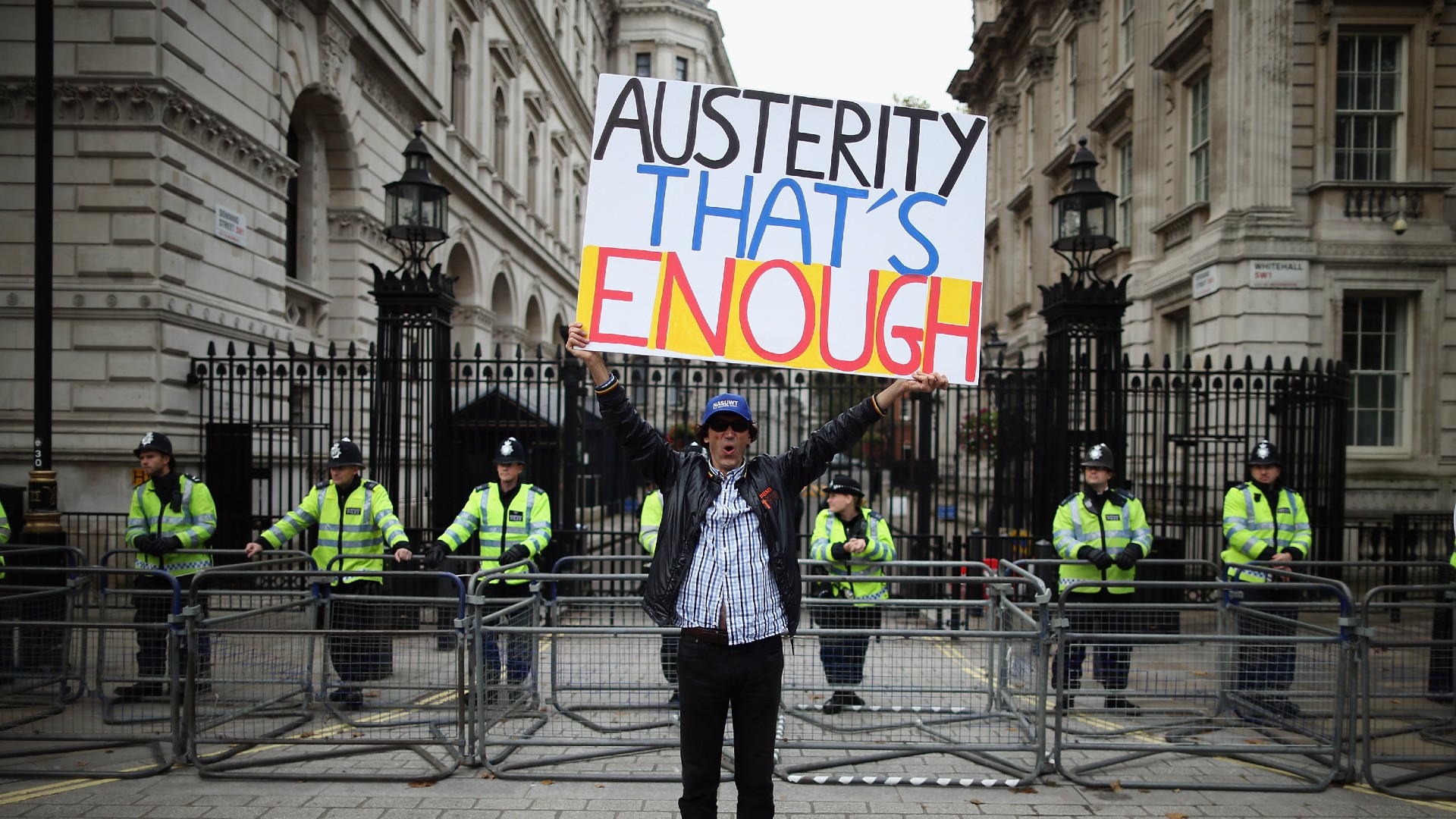UK deficit to rise to peacetime record
Treasury quadruples borrowing plans as it grapples with coronavirus fallout

A free daily email with the biggest news stories of the day – and the best features from TheWeek.com
You are now subscribed
Your newsletter sign-up was successful
The UK’s budget deficit is set to increase to a level never before seen in peacetime, as government borrowing to cover the coronavirus cost burden skyrockets.
In a statement to financial markets, the Treasury said it would seek to raise £180bn over the next three months to allow it to meet its spending needs as tax revenues plunge. This is on top of £45bn already planned for April.
The Financial Times reports that “the government is likely to find willing buyers for the avalanche of gilts it will place on the market in coming months because the Bank of England has pledged to snap up £200bn in the secondary market under its latest and largest quantitative easing programme”.
The Week
Escape your echo chamber. Get the facts behind the news, plus analysis from multiple perspectives.

Sign up for The Week's Free Newsletters
From our morning news briefing to a weekly Good News Newsletter, get the best of The Week delivered directly to your inbox.
From our morning news briefing to a weekly Good News Newsletter, get the best of The Week delivered directly to your inbox.
“The government’s gilt sales to City investors and overseas asset managers are typically higher than the budget deficit – the annual shortfall between public spending and income from tax receipts – as it includes raising money to refinance existing government bonds,” says The Guardian. “However, the vast increase in gilt sales suggests that borrowing is expected to balloon, as the state pays workers’ wages and as more people claim unemployment benefits”.
“One reason is the huge cost of programmes such as furloughing, now expected to cost well north of £50bn,” says BBC economics correspondent Andy Verity. “The other reason is that the government's revenues - the tax it collects through income tax, VAT and national insurance - are collapsing. If you shut down much of the economy, you also turn off the tap on much of the government's tax income.”
The Office for Budget Responsibility (OBR) has warned that the budget deficit could surge to £273bn this financial year - 14% of GDP, which “would be the largest single year deficit since the Second World War”, the Daily Express says.
The picture for the full financial year looks even bleaker.
A free daily email with the biggest news stories of the day – and the best features from TheWeek.com
The OBR estimates that the government might need to borrow up to £382bn for the year, about seven times what was expected pre-Covid. “That depends, though, on the shutdown being lifted sooner rather than later,” says Verity.
The Resolution Foundation thinktank, meanwhile, calculates that a six-month lockdown would require the government to raise around £500bn in financing this financial year.
“It signals a massive challenge ahead for the government to claw back cash at a time when it is also, currently, determined to press ahead with its election agenda of ‘levelling up’ UK regions,” says Sky News.
–––––––––––––––––––––––––––––––For a round-up of the most important stories from around the world - and a concise, refreshing and balanced take on the week’s news agenda - try The Week magazine. Start your trial subscription today –––––––––––––––––––––––––––––––
-
 Switzerland could vote to cap its population
Switzerland could vote to cap its populationUnder the Radar Swiss People’s Party proposes referendum on radical anti-immigration measure to limit residents to 10 million
-
 Political cartoons for February 15
Political cartoons for February 15Cartoons Sunday's political cartoons include political ventriloquism, Europe in the middle, and more
-
 The broken water companies failing England and Wales
The broken water companies failing England and WalesExplainer With rising bills, deteriorating river health and a lack of investment, regulators face an uphill battle to stabilise the industry
-
 The end for central bank independence?
The end for central bank independence?The Explainer Trump’s war on the US Federal Reserve comes at a moment of global weakening in central bank authority
-
 Is the UK headed for recession?
Is the UK headed for recession?Today’s Big Question Sluggish growth and rising unemployment are ringing alarm bells for economists
-
 Should Labour break manifesto pledge and raise taxes?
Should Labour break manifesto pledge and raise taxes?Today's Big Question There are ‘powerful’ fiscal arguments for an income tax rise but it could mean ‘game over’ for the government
-
 What are stablecoins, and why is the government so interested in them?
What are stablecoins, and why is the government so interested in them?The Explainer With the government backing calls for the regulation of certain cryptocurrencies, are stablecoins the future?
-
 Will Rachel Reeves have to raise taxes again?
Will Rachel Reeves have to raise taxes again?Today's Big Question Rising gilt yields and higher debt interest sound warning that Chancellor may miss her Budget borrowing targets
-
 Securonomics: what is Rachel Reeves' economic plan and will it work?
Securonomics: what is Rachel Reeves' economic plan and will it work?The Explainer Focus on economic security and the resilience of industry in an uncertain world is 'key to growth', say Labour
-
 New austerity: can public services take any more cuts?
New austerity: can public services take any more cuts?Today's Big Question Some government departments already 'in last chance saloon', say unions, as Conservative tax-cutting plans 'hang in the balance'
-
 Will the UK economy bounce back in 2024?
Will the UK economy bounce back in 2024?Today's Big Question Fears of recession follow warning that the West is 'sleepwalking into economic catastrophe'